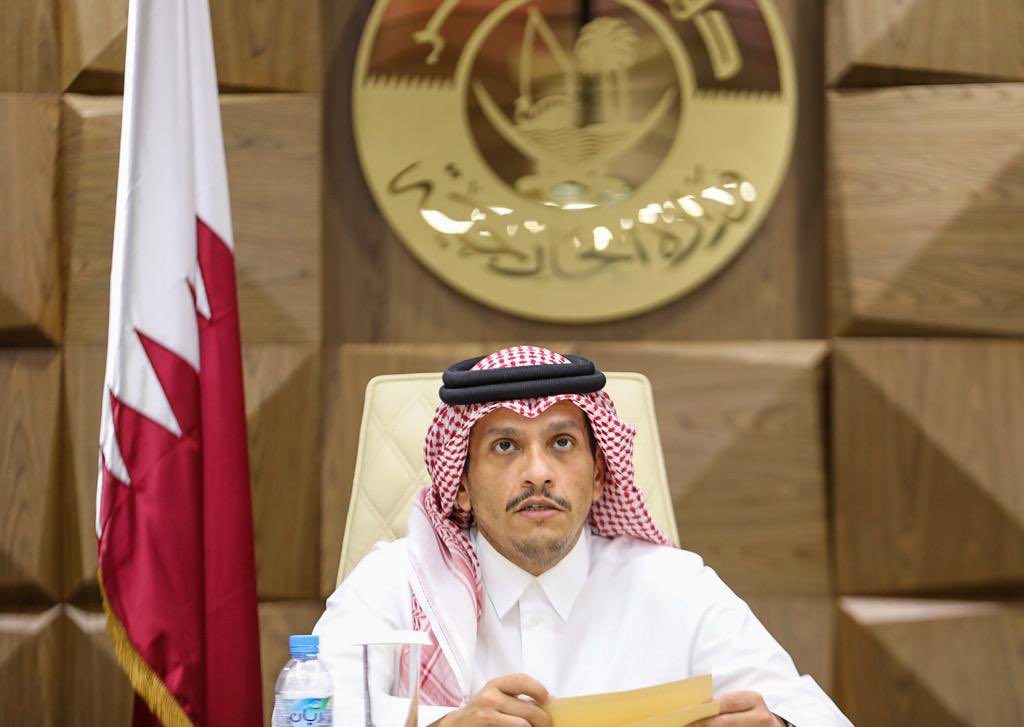The Shura Council’s nationality policies sparked debates and small-scale protests in the Gulf state.
Qatar’s Foreign Minister Sheikh Mohammed bin Abdulrahman Al-Thani confirmed laws on who is eligible to participate in the Shura Council elections can be amended once the new body is elected into office.
“There may be a legal restriction right now, which is not allowing maybe part of the population to participate in the elections…but there is also a clear process for this law to be changed that the next Shura Council should address,” said Sheikh Mohammed in an interview with the US Council on Foreign Relations [CFR] on the sidelines of the 7th Session of the UNGA.
The diplomat stressed that the government “is for everyone who is living in Qatar” and it is committed to serve all populations under “the same conditions and level of service”.
“Whoever is elected in the Shura Council, their role and their obligation is to serve all the Qataris and represent all Qataris despite their backgrounds,” added Sheikh Mohammed.
The Qatari foreign minister’s comments come as the country prepares to host its first ever legislative elections on 2 October—a key moment that paves the way for more pluralism and public participation in the Gulf state.
Last month, many took to social media to protest provisions on voters and candidates for the elections, with debates and small-scale protests sprouting up to voice disapproval.
Currently, the electoral law stipulates that Qatari nationals wishing to vote must be 18 by the time the final electoral lists are announced. However, those who have been nationalised are only eligible if their paternal grandfather was born in Qatar by a specific date.
Similarly, for those wishing to win a seat in the council, candidates must be “native” Qatari and aged 30 and above by the closing date of the nomination. As per a referendum voted in by Qataris in 2003, such laws can only be changed by the Shura Council, which is unable to do so until it is elected into office.
These stipulations were met with objections by some who described them as “discriminatory” against members of the Qatari society who cannot run as they are not considered “native”.
On social media, members of the Al Marra tribe said they are unable to run for Shura Council elections as they are deemed to be “native Qatari” as per the law, stirring up anger among the community.
The dispute also caused divisions among some members of the Al Marra and Bani Yafei tribes though that was soon extinguished with a senior royal level visit to both tribes.
Sheikh Khalifa bin Hamad Al Thani, brother of the Amir, also paid a visit to the home majlis of the Bin Yafei tribe last month in a gesture that has gone viral after days of protests.
Sheikh Khalifa meets tribal elders as election law protests subside
Amid the unrest, the Ministry of Interior [MOI] issued a statement saying that “the relevant authorities of the Ministry of Interior has referred seven people to the Public Prosecution after using social media to spread incorrect news and incited racism and tribalism”.
Speaking on Qatar TV, prominent Qatari judge and Qatar University professor of law Dr. Hassan Al Sayed said it’s important that elections are a means to appointing those who represent the needs of the people to the Shura Council.
“Elections are not a benchmark of the national identity that has taken shape through the solidarity of the community and its tolerant moral values,” said Al-Sayed to Qatar’s national television channel.
In response to the the growing unrest online, social media users in Qatar quickly mobilised under a hashtag to support the country and Amir Sheikh Tamim bin Hamad Al Thani, calling for calm and logic to prevail.
Speaking on Qatar TV, Al Sayed echoed this sentiment, saying: “The possibility of constitutional amendment is carried out by the elected Shura Council, and then referred to His Highness the amir for ratification.”
Qatari Nationality Law
According to Article 1 of the Qatari Nationality Law, those who are considered ‘native Qatari’ are:
- Those who settled in Qatar before 1930 AD and maintained their residence there, and retained their Qatari citizenship until the effective date of Law No. 2 of 1961.
- Whoever proves to be of Qatari descent, even if they do not meet the conditions stipulated in the previous clause, and an Amiri decision has been issued as such.
- Those to whom Qatari citizenship has been given, in accordance with the provisions of the law.
- Whoever was born in Qatar or abroad to a Qatari father under the previous clauses.
Follow Doha News on Twitter, Instagram, Facebook and Youtube







